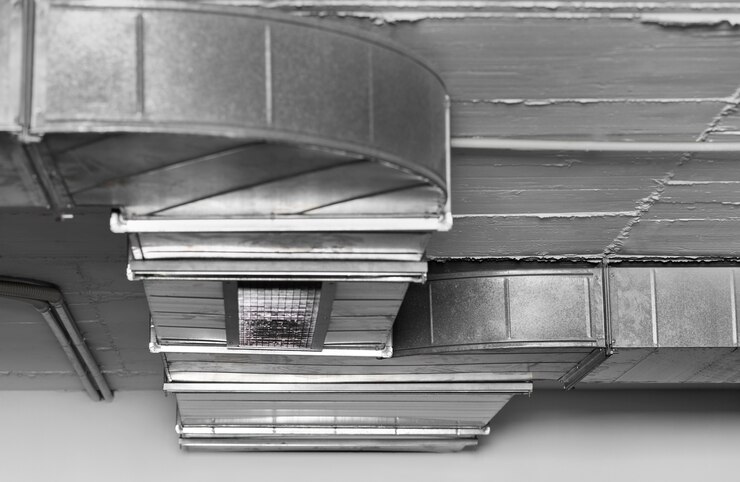When it comes to maintaining a healthy and comfortable indoor environment, one often overlooked but essential component is the filters for AC. These filters are responsible for trapping dust, allergens, and pollutants, ensuring that the air circulating through your home or business is clean and safe to breathe. Choosing the right filter for your air conditioning system can make a significant difference in both air quality and the efficiency of your HVAC system. This guide will help you understand the different types of AC filters, their benefits, and how to choose the best one for your needs.
Understanding the Importance of Filters for AC
Air filters are integral parts of any HVAC system. They serve as barriers that catch airborne particles and pollutants, preventing them from entering the air you breathe. High-quality AC filters can also help protect your HVAC system, ensuring it operates efficiently by preventing dust and debris from clogging its components.
Without the right AC filters, your system may have to work harder, which could lead to increased energy consumption, higher utility bills, and potentially costly repairs. Additionally, an inadequate filter could allow harmful particles such as pollen, dust mites, and pet dander to circulate throughout your space, potentially causing health issues, especially for those with allergies or respiratory conditions.
Types of Filters for AC
There are various types of AC filters, each designed for specific needs. When selecting the right filter, it’s important to consider factors such as the filter’s material, its Minimum Efficiency Reporting Value (MERV) rating, and whether you need a custom-sized option.
Fiberglass Air Filters
Fiberglass air filters are among the most common and affordable options. These filters use a layered mesh of fiberglass to trap large particles, such as dust and dirt. They generally have a low MERV rating of 3, making them suitable for basic filtration needs in residential spaces. While these filters are effective for keeping your AC system running smoothly by preventing large debris from entering, they are less efficient at trapping smaller particles like pollen or pet dander.
Polyester Air Filters
For better filtration, polyester air filters are a great option. With a MERV rating of 5, these filters can capture smaller particles than fiberglass filters, such as dust, mold spores, and pet dander. Polyester filters offer a balance between cost and performance, making them a popular choice for households and offices looking to improve indoor air quality without breaking the bank.
Pleated Air Filters
Pleated air filters are highly efficient and provide superior filtration compared to fiberglass and polyester filters. With a MERV rating of 8+, pleated filters can trap finer particles such as pollen, dust mites, and smoke. These filters are ideal for those with allergies or asthma, as they can significantly improve air quality. The pleated design increases the surface area of the filter, allowing it to capture more particles without sacrificing airflow.
Custom Air Filters
In some cases, standard-sized filters may not fit your HVAC system. This is where custom air filters come in. Custom filters are tailored to your exact specifications, ensuring a perfect fit for your system. Whether you need a unique size or specific material, custom filters provide the flexibility to meet your exact air filtration requirements. These filters are especially beneficial for industrial or commercial applications where unique HVAC systems require specialized solutions.
Choosing the Right MERV Rating for Your Filters for AC
The MERV rating of a filter determines its ability to capture airborne particles. The higher the MERV rating, the more particles the filter can trap. Here’s a breakdown of different MERV ratings and their effectiveness:
- MERV 3/4: These filters provide basic filtration and are ideal for homes or businesses where air quality is not a major concern.
- MERV 5/6: These filters offer moderate filtration and are suitable for households that need to trap larger dust particles and some allergens.
- MERV 8: A good choice for those who suffer from allergies, as these filters trap finer particles such as pollen and mold spores.
- MERV 10-13: These filters provide excellent filtration, capturing small particles like tobacco smoke, pet dander, and even bacteria. Ideal for people with severe allergies or respiratory issues.
When choosing the right MERV rating for your AC filters, consider the air quality needs of your space and the specific pollutants you wish to filter out. Higher MERV ratings provide better filtration but may also restrict airflow, so it’s important to balance efficiency with the needs of your HVAC system.
Benefits of Using High-Quality Filters for AC
Using high-quality AC filters offers several key benefits:
- Improved Indoor Air Quality: By trapping harmful particles like dust, allergens, and pollutants, these filters ensure the air you breathe is cleaner and healthier.
- Increased Energy Efficiency: Clean filters allow your HVAC system to operate more efficiently, reducing the strain on the system and lowering energy consumption.
- Longer HVAC Lifespan: Filters that capture dirt and debris prevent damage to your HVAC system, extending its lifespan and reducing the need for costly repairs.
- Reduced Allergens: For individuals with allergies or respiratory conditions, using the right filter can reduce symptoms by trapping allergens like pollen, pet dander, and dust mites.
How to Choose the Best Filters for AC for Your Needs
Selecting the right AC filters depends on several factors, including the size of your space, the type of HVAC system, and your air quality requirements. Here are some tips to guide you in making the best choice:
- Determine the Size: Air filters come in a variety of sizes. Measure your current filter or check your system’s manual to ensure you select the correct size. Custom filters are available if you need a specific size.
- Consider the MERV Rating: As discussed, the MERV rating determines the filter’s ability to trap particles. Choose a filter with the appropriate MERV rating based on your air quality needs.
- Material Type: Depending on your filtration requirements, you can choose between fiberglass, polyester, or pleated filters. Each type offers different levels of filtration.
- Frequency of Replacement: Filters should be replaced regularly to maintain optimal performance. The frequency depends on the filter type, the environment, and your HVAC usage. Generally, pleated filters may last up to 90 days, while fiberglass filters may need to be replaced more frequently.
Importance of Choosing the Right AC Filter
Choosing the right filters for AC is crucial for maintaining good indoor air quality and ensuring the efficiency of your HVAC system. By considering factors like filter type, MERV rating, and size, you can make an informed decision that meets your specific needs. Whether you opt for a basic fiberglass filter or a high-performance pleated filter, investing in quality air filters will result in cleaner air and a more efficient HVAC system.
Regularly replacing your filters is key to achieving the best results. By doing so, you can ensure that your HVAC system operates smoothly while keeping the air in your home or business clean and healthy.






